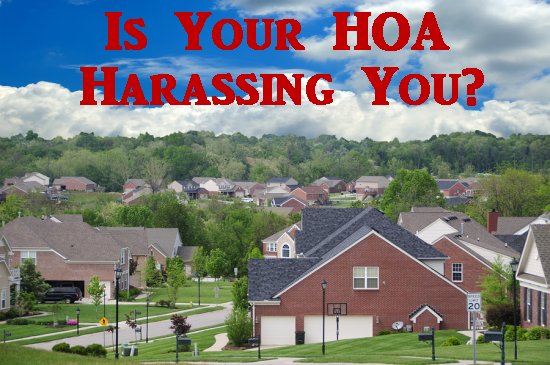
As long as you're squared away and can afford to pay all your fees on time, you may never have any issues, but if you miss payments or fail to take care of your property, you can expect trouble. HOAs can be extremely aggressive when it comes to making you tow the line and pay up. Depending on the nature of the HOA agreement, they can charge you over and over for the same infraction until you fix it and then pile fees and interest on top of it.
And when it comes to your annual or monthly common area charges, if those aren't paid on time, expect late fees and interest as well. Late charges can be the greater of $20 a month or 10% of the balance owed. Interest can be as high as 18% a year. On top of this, the HOA can hit you up to cover their attorney's fees and you can be sure they're not using a bargain basement law firm. You can expect that to be thousands of dollars as well.
In North Carolina, once your HOA debt hits 30 days past due, the HOA can file a lien on your property. That's bad enough, but here's where it gets crazy. Did you know that your HOA can actually foreclose on your property even if your mortgage payments are completely current? Here's the order that things must legally proceed for this to happen:
- You miss a payment of one type or another to the HOA.
- The HOA sends you a notice telling you how much you owe and gives you 15 days to pay. (If you pay within this window you don't have to pay the attorney fees.) They also have to give you the chance to work out a payment plan.
- The HOA must serve you a copy of the lien they're filing.
- After 90 days of you still not paying, the HOA can foreclose on your property, but must give you notice first.
But foreclosure of the home does not similarly extinguish the HOA lien. Even if the HOA never took it to the lien stage and it's just HOA fees and fines accumulated, the loss of your home won't make this debt go away. HOAs may then sue you in court and try to go after other assets. The good news is that if you want a clean slate and are facing foreclosure, a Chapter 7 bankruptcy can give you a fresh start.
However, to avoid leftover HOA fees that can come back and bite you, you want to carefully time your filing to fully protect yourself. That means waiting until after the foreclosure sale and the purchaser (usually the mortgage lender) has officially taken possession of the property. Here's why – HOA fees never stop accumulating and if you file Chapter 7 while the house is still legally yours and they haven't taken possession, your fresh start will not be as complete as it could be.
